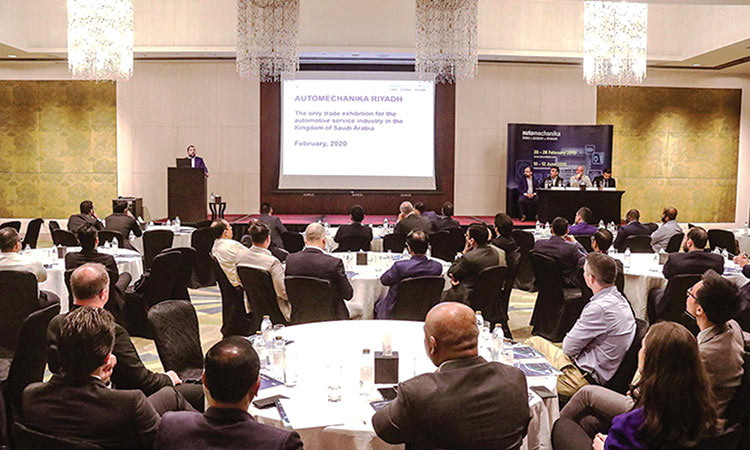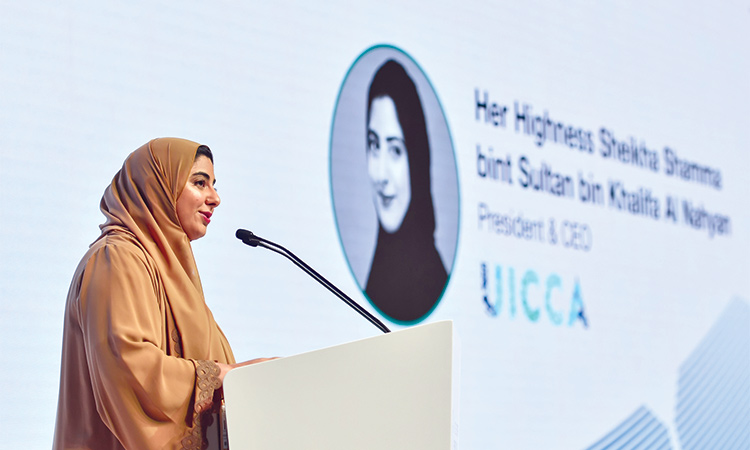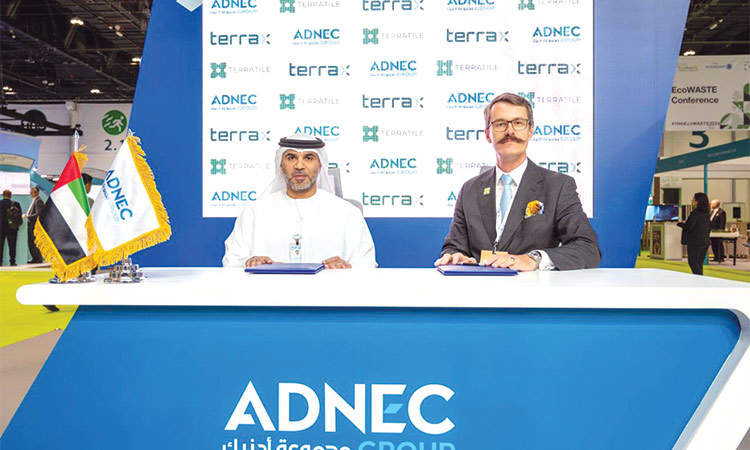Big data and AI to play a big role in ME’s auto aftermarket future

Participants during the event in Dubai.
Inayat-ur-Rahman, Senior Staff Reporter
DUBAI: An ongoing transformation in the Middle East automotive industry will have a sizeable impact on the regional aftermarket, with big data and analytics playing a pivotal role in how industry players optimise their value chain, experts said. Vishal Sanghavi, Project Manager for Automotive and Transportation at research and advisory firm Aranca, said mega trends such as shared mobility, electrification, connectivity and autonomous vehicles, will lead to a big shift in the redistribution of profits across the value chain, with the emergence of new technologies opening up fresh opportunities.
“The global automotive industry is undergoing massive transformation and Middle East is no exception to this change,” said Mr. Sanghavi. “Big data and analytics will enable aftermarket players to optimise the value chain end-to-end based on predictive maintenance while new technology providers will become an integral part of the automotive value chain.” Sanghavi said increasing demand for shared mobility will contribute to higher vehicle utilisation which will positively drive aftermarket revenues from spare parts and repairs, while connected cars in particular will allow repair and maintenance providers unique insights into customer needs.
“Growth in connectivity delivers the possibility of closer, more immediate relationships of aftermarket players with customers,” he said. “However, these players will have to develop competencies required to tackle increasing technological complexity of next-generation vehicles.” Sanghavi was speaking recently at the 13th Automechanika Dubai Network, attended by more than 100 aftermarket industry professionals.
He advised manufacturers to focus on developing more connected car solutions, adding that connectivity is expected to be the fastest growing mobility trend in the region: “Advanced telematics solutions, vehicle-to-vehicle connectivity technologies and infotainment solutions are some of the most sought after innovations in the Middle East,” he said.
“Connected car penetration, which stood at approximately 17 per cent of vehicles on Middle East roads in 2018, is expected to witness a compound annual growth rate of 22 per cent until 2023. About 6.7 million vehicles on the roads are anticipated to be equipped with some level of connectivity features by the end of 2023. New vehicle launches, especially within high-end segments are expected to incorporate built-in connectivity features.” Sanghavi spoke about the five year impact of mobility trends in the Middle East at the 13th Automechanika Network, a bi-annual gathering focusing on key issues and trends affecting the regional automotive aftermarket. The event is hosted by Messe Frankfurt Middle East, the organiser of the Automechanika Dubai, Riyadh, and Jeddah trade fairs.
Also speaking was Christophe Vloebergh, CASE Implementation Manager for Mercedes-Benz Cars Middle East; and Jorge Bialade, General Manager of YallaMotor.com, the Middle East’s largest automotive portal for the sale of new and used cars, car prices, car reviews and auto businesses.
Bialade said aftermarket businesses can leverage online tools to better engage with customers, and agrees that big data and artificial intelligence will be critical: “It’s clear that digitalisation and e-commerce will reduce the current frictions and bring more transparency to the purchase phase.” “Additionally, big data and artificial intelligence will be an essential part for any business to better understand the customer needs. For example, everyone can eventually sell a battery, but those who are able to know precisely when that battery needs to be replaced will be at the forefront.” Bialade added that electric vehicles too will have a big influence on how the aftermarket might look in the future, but there’s some way to go: “At YallaMotor.com, we did a survey with more than 3,800 car buyers across the Gulf region. Their statement was clear: more than 44 per cent are willing to buy an electric vehicle in the next two years.” “However, there are many challenges that we, as an industry, need to tackle in order to promote the acceleration of electric vehicles in the region. That said, EVs will certainly shift aftermarket requirements by increasing our dependence on software rather than hardware.” Vloebergh meanwhile, addressed the audience on Daimler AG’s Vision on the Future of Mobility and the manufacturer’s CASE (Connected, Autonomous, Shared and Electric) vehicle portfolio.
Vloebergh said perhaps the biggest change in the industry will be in vehicle ownership: “There’re so many changes we can expect to see in the auto industry, but if I have to choose one, I would say the expected switch from ‘solely exclusive car-ownership’ – as we all know it today – towards a more ‘shared mobility use’ in an autonomous way of course, will be the biggest change,” he said.



